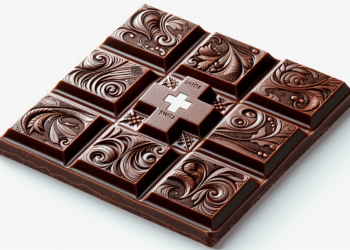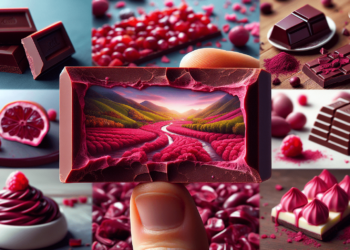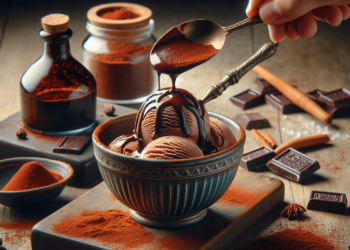Have you ever tasted a piece of chocolate that was so exquisite it transported you to a state of pure bliss? Well, get ready to embark on a chocolate adventure like no other as we delve into the world of the finest, most delectable chocolates known to mankind. From silky smooth textures to a symphony of flavors, the best chocolate in the world promises to tantalize your taste buds and leave you craving for more. Prepare to be seduced by the unparalleled craftsmanship and dedication that goes into creating these divine treats. Get ready to experience pure cocoa perfection.
Belgian Chocolate
History of Belgian Chocolate
Belgian chocolate has a rich and long-standing history that dates back centuries. It all began in the 17th century when Belgian explorers brought cocoa beans back from their travels in Central America. Initially, the country’s chocolate industry was small-scale, but it soon flourished and gained a reputation for its exceptional quality. The 19th century saw the emergence of the praline, a delectable filled chocolate, which further solidified Belgium’s position as a chocolate powerhouse. Today, Belgian chocolate is synonymous with luxury and is beloved by chocolate connoisseurs around the globe.
Characteristics of Belgian Chocolate
What sets Belgian chocolate apart is its smooth and velvety texture, as well as its exquisite taste. Belgian chocolatiers take great pride in their craftsmanship and use only the finest ingredients, including high-quality cocoa beans and premium cocoa butter. The chocolate undergoes a precise and controlled manufacturing process, resulting in a perfectly balanced flavor profile. Belgian chocolate is known for its rich and intense taste, with a perfect balance of sweetness, bitterness, and creaminess. Its melt-in-your-mouth consistency is truly a delight for the senses.
Famous Belgian Chocolate Brands
Belgium is home to several world-renowned chocolate brands that have become synonymous with excellence in the industry. One of the most famous brands is Godiva, which has been crafting luxurious chocolates since 1926. Their chocolates are known for their iconic gold packaging and their wide range of flavors and fillings. Another beloved Belgian brand is Neuhaus, which invented the praline back in 1912. Their chocolates are a true tribute to Belgian craftsmanship and are adored by chocolate lovers worldwide. Other notable Belgian chocolate brands include Leonidas, Guylian, and Pierre Marcolini.
Swiss Chocolate
History of Swiss Chocolate
Switzerland has a longstanding tradition of chocolate-making that dates back to the early 19th century. The Swiss were pioneers in the industry, developing new techniques and innovations that would shape the future of chocolate. In 1819, François-Louis Cailler opened the country’s first chocolate factory, marking the beginning of Switzerland’s chocolate revolution. Over the years, Swiss chocolatiers perfected their craft, and Swiss chocolate became synonymous with quality and precision.
Characteristics of Swiss Chocolate
Swiss chocolate is renowned for its exceptionally smooth and creamy texture. The secret lies in the meticulous attention to detail during the manufacturing process. Swiss chocolatiers use a technique called conching, which involves continuously stirring and heating the chocolate to develop its unique consistency. This process gives Swiss chocolate its distinctively velvety feel on the palate. Additionally, Swiss chocolate is often made with high-quality fresh milk, contributing to its creamy and luscious taste. The combination of meticulous craftsmanship, premium ingredients, and precise technique all contribute to the exceptional quality of Swiss chocolate.
Famous Swiss Chocolate Brands
Switzerland boasts many iconic chocolate brands that have become synonymous with Swiss chocolate excellence. Lindt is one of the most internationally recognized and beloved Swiss brands. Established in 1845, Lindt is known for its smooth and melt-in-your-mouth chocolate, particularly its signature Lindor truffles. Another notable Swiss brand is Toblerone, famous for its triangular-shaped chocolate bars filled with honey and almond nougat. Other renowned Swiss chocolate brands include Sprüngli, Cailler, and Frey.
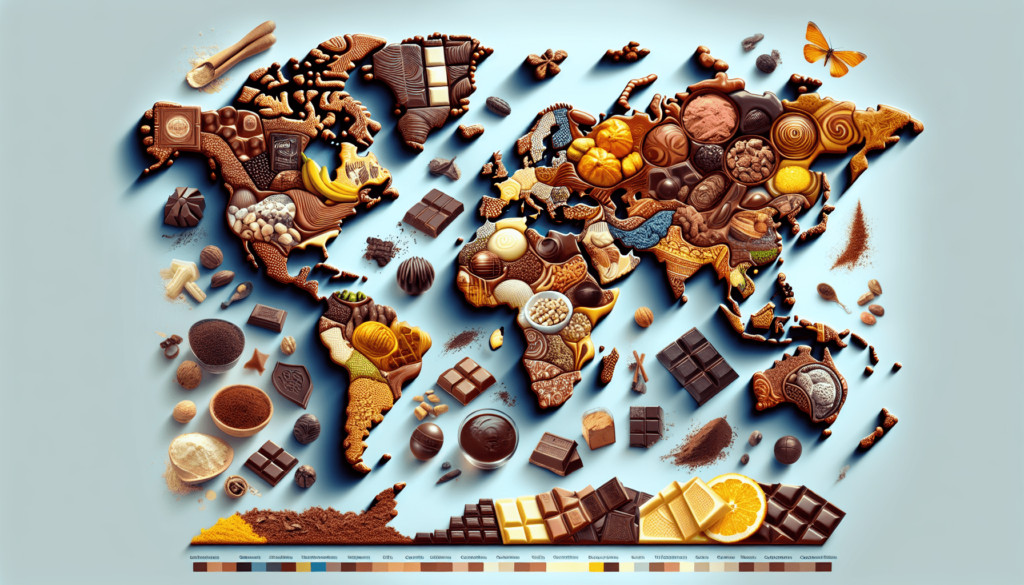
French Chocolate
History of French Chocolate
France has a rich culinary heritage, and its chocolate industry is no exception. The French have been crafting exquisite chocolates since the 17th century, with a focus on elegance and sophistication. In the 19th century, Parisian chocolatiers rose to prominence, introducing a wide array of chocolate creations to the world. French chocolate rapidly gained a reputation for its artistry and finesse, firmly establishing France as one of the leading producers of premium chocolates.
Characteristics of French Chocolate
French chocolate is characterized by its refined flavors and impeccable presentation. French chocolatiers take great care in selecting the finest cocoa beans and ingredients to create their masterpieces. The chocolate itself has a smooth and delicate texture, allowing the flavors to develop gradually on the palate. French chocolate often showcases the use of high-quality fruits, nuts, and spices, which add complexity and sophistication to the taste. The chocolates are meticulously crafted and adorned with elegant designs, making them a feast for both the eyes and the taste buds.
Famous French Chocolate Brands
France is home to several iconic chocolate brands that have captured the hearts of chocolate enthusiasts worldwide. One such brand is Valrhona, known for its exceptional quality and dedication to using only the finest cocoa beans. Valrhona offers a wide range of chocolates, from dark and intense to creamy and indulgent. Another renowned French brand is La Maison du Chocolat, which has been delighting chocolate lovers since 1977. Their handmade chocolates are created with precision and creativity, showcasing the artistry of French chocolate-making. Other notable French chocolate brands include Michel Cluizel, Pralus, and Debauve & Gallais.
Italian Chocolate
History of Italian Chocolate
Italy has a longstanding love affair with chocolate that dates back centuries. While Italian chocolate may not be as globally recognized as Belgian or Swiss chocolate, it still holds a special place in the hearts of chocolate connoisseurs. Italians discovered chocolate during the Renaissance when cocoa beans were brought back from explorations in the Americas. Throughout history, Italy has developed its own unique chocolate traditions and specialties, often influenced by regional flavors and techniques.
Characteristics of Italian Chocolate
Italian chocolate is known for its smooth and creamy texture, with a focus on using high-quality ingredients. One of the defining characteristics of Italian chocolate is its use of hazelnuts, particularly in the iconic gianduja chocolate. This combination of chocolate and ground hazelnuts creates a rich and decadent treat that Italians have perfected over the years. Italian chocolates also showcase the country’s love for creativity and artistry, often featuring elaborate designs and packaging. The taste of Italian chocolate can range from sweet and subtle to rich and intense, depending on the brand and variety.
Famous Italian Chocolate Brands
Italy is home to several renowned chocolate brands that have made a name for themselves in the industry. Perugina, founded in 1907, is one of Italy’s most beloved chocolate brands. They are famous for their iconic Baci chocolates, which consist of a velvety chocolate shell filled with a whole hazelnut and a romantic love note. Amedei is another notable Italian brand that has gained international recognition for its exceptional single-origin chocolates. Their attention to detail and commitment to quality have earned them numerous awards and loyal customers worldwide. Other notable Italian chocolate brands include Venchi, Domori, and Slitti.
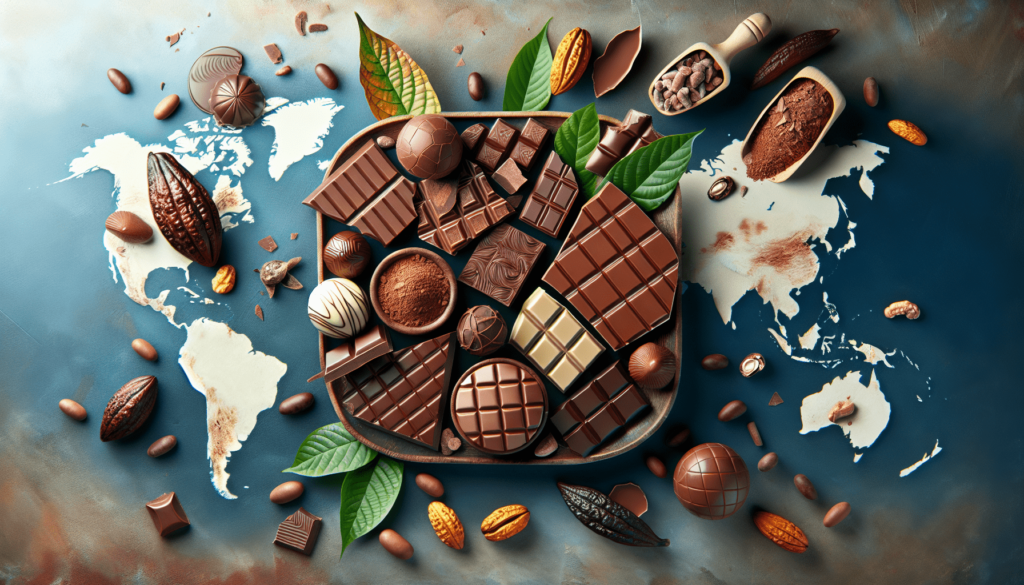
Bean-to-Bar Chocolate
Understanding Bean-to-Bar Chocolate
Bean-to-bar chocolate refers to a type of chocolate-making process where the entire production process, from sourcing the cocoa beans to making the final chocolate bar, is controlled by a single entity. This approach allows for direct sourcing from cocoa farmers, ensuring fair trade and transparency. Bean-to-bar chocolatiers prioritize quality and traceability, often working with smaller farms and rare cocoa varieties.
Craft Chocolate vs Industrial Chocolate
Bean-to-bar chocolate falls under the category of craft chocolate, which stands in stark contrast to the mass-produced industrial chocolate that dominates the market. Craft chocolate emphasizes the artistry, quality, and uniqueness of each batch, whereas industrial chocolate focuses on mass production and standardization. Craft chocolate makers often take pride in their attention to detail, choosing the finest cocoa beans and employing traditional chocolate-making techniques. This emphasis on craftsmanship results in chocolate that is more nuanced in flavor and texture compared to the homogeneity of industrial chocolate.
Bean-to-Bar Chocolate Brands
The rise of the bean-to-bar movement has led to the emergence of numerous artisanal chocolate brands that are redefining the chocolate experience. One such brand is Mast Brothers, which played a pivotal role in popularizing the bean-to-bar movement in the United States. Their chocolate bars feature a range of flavors crafted from scratch, with a focus on highlighting the unique characteristics of each cocoa bean origin. Another esteemed bean-to-bar brand is Amano Artisan Chocolate, known for its commitment to traditional methods and exceptional flavor profiles. Chocolate enthusiasts also appreciate Dandelion Chocolate, Fruition Chocolate, and Raaka Chocolate for their dedication to bean-to-bar craftsmanship.
Single-Origin Chocolate
Exploring Single-Origin Chocolate
Single-origin chocolate refers to chocolate made from cocoa beans sourced from a specific region or estate, allowing the unique flavors of that origin to shine through. Unlike blended chocolate, which combines beans from various regions or countries, single-origin chocolate offers a more distinct and nuanced taste experience. Each cocoa origin brings its own flavor profile, influenced by factors such as soil, climate, and farming practices.
Why Single-Origin Chocolate is Special
Single-origin chocolate is highly regarded among chocolate aficionados for its extraordinary flavors and complexity. The distinct terroir of each cocoa origin imparts unique characteristics to the chocolate. For example, chocolate made from beans grown in Madagascar may exhibit fruity and tangy notes, while chocolate from Ecuador might showcase floral and nutty flavors. Single-origin chocolate allows chocolate lovers to explore the diverse range of flavors that cocoa can offer and appreciate the craftsmanship involved in bringing out the best in each bean.
Notable Single-Origin Chocolate Producers
There are several notable single-origin chocolate producers who have dedicated themselves to showcasing the uniqueness of different cocoa origins. Domori, an Italian brand, is renowned for its single-origin chocolates made from rare and high-quality cocoa beans. Their chocolates celebrate the flavor nuances of specific regions such as Venezuela, Madagascar, and Peru. Taza Chocolate, based in the United States, is another respected producer of single-origin chocolates. They specialize in stone-ground chocolate, which enhances the texture and intensity of the cocoa flavors. Other notable single-origin chocolate producers include Amedei, Marou Chocolate, and Original Beans.
Artisan Chocolate
What Defines Artisan Chocolate
Artisan chocolate refers to chocolate that is crafted by skilled chocolatiers using traditional methods and high-quality ingredients. The focus is on handcrafted, small-batch production, allowing for greater attention to detail and unique flavor combinations. Artisan chocolatiers often prioritize quality over quantity, resulting in chocolates that are distinct in taste, texture, and presentation.
Benefits of Artisan Chocolate
Artisan chocolate offers chocolate lovers a truly exceptional and personalized experience. The use of high-quality ingredients, such as premium cocoa beans and natural flavorings, contributes to the superior taste and texture of artisan chocolates. Additionally, artisan chocolatiers often experiment with interesting and unexpected flavor combinations, pushing the boundaries of traditional chocolate. The emphasis on craftsmanship and attention to detail means that each piece of artisan chocolate is a work of art, making it the perfect indulgence or gift for any chocolate connoisseur.
Artisan Chocolate Makers to Try
There are numerous talented artisan chocolatiers around the world who are pushing the boundaries of chocolate making. Pierre Marcolini, based in Belgium, is widely regarded as one of the finest artisan chocolatiers in the industry. His chocolates are celebrated for their exquisite flavors and stunning designs. Another notable chocolatier is Jacques Torres, also known as “Mr. Chocolate.” His New York-based chocolate empire specializes in handcrafted chocolates made with the finest ingredients. Other artisan chocolate makers worth exploring include Christopher Elbow, Patrick Roger, and Paul A. Young.
Dark Chocolate
Health Benefits of Dark Chocolate
Dark chocolate, particularly those with high cocoa content, is known to offer a range of health benefits. It contains powerful antioxidants, such as flavonoids and polyphenols, which help protect the body against cell damage and inflammation. Dark chocolate has been associated with improved heart health, as it may help lower blood pressure and reduce the risk of heart disease. Additionally, dark chocolate is known to enhance mood by promoting the release of endorphins, leading to a feeling of happiness and relaxation. However, it is essential to enjoy dark chocolate in moderation as it is still high in calories and fat.
Choosing High-Quality Dark Chocolate
When selecting dark chocolate, it’s important to look for bars with a high cocoa content, ideally above 70%. The higher the percentage, the more intense and bitter the chocolate will be. It’s also beneficial to check the ingredient list and opt for chocolates with minimal additives and natural flavorings. Paying attention to the source and quality of the cocoa beans is also key – look for sustainable and ethically sourced chocolates whenever possible. Lastly, consider the texture and mouthfeel of the chocolate to ensure a satisfying and enjoyable experience.
Popular Dark Chocolate Brands
Dark chocolate has gained immense popularity worldwide, with several brands standing out for their commitment to quality and flavor. Ghirardelli, a historic American chocolate company, offers a wide range of dark chocolates, including their popular Intense Dark collection. Lindt, the Swiss chocolate giant, also produces a range of dark chocolate bars that cater to various tastes and preferences. Additionally, Green & Black’s, a UK-based organic chocolate brand, is highly regarded for its rich and intense dark chocolates. Other popular dark chocolate brands worth exploring include Valrhona, Theo Chocolate, and Alter Eco.
Cacao Percentage
Understanding Cacao Percentage
The cacao percentage refers to the amount of cocoa mass and cocoa butter contained in a chocolate bar. It is an essential factor in determining the intensity, flavor, and sweetness of the chocolate. For example, a chocolate bar with a cacao percentage of 70% means that 70% of the total weight comes from cocoa beans, while the remaining 30% consists of sugar, milk powder (if any), and other ingredients.
Effects of Different Cacao Percentages
As the cacao percentage increases, the chocolate becomes darker, less sweet, and more intense in flavor. Higher percentages tend to have a more pronounced bitterness, as well as a stronger chocolate taste. On the other hand, lower cacao percentages result in sweeter and creamier chocolate. The balance of sweetness, bitterness, and intensity can vary significantly depending on personal taste preferences and the intended use of the chocolate.
Recommended Cacao Percentages for Different Tastes
Choosing the right cacao percentage largely depends on individual preferences and the intended use of the chocolate. For those who enjoy a balanced and slightly sweet chocolate, a cacao percentage of around 60-70% is recommended. This range offers a good compromise between sweetness and bitterness. If you prefer a more intense and bitter chocolate experience, opt for a higher cacao percentage, such as 70-85%. On the other hand, for a milder and sweeter taste, lower percentages, such as 40-50%, may be more suitable. Ultimately, experimenting with different cacao percentages allows you to discover your personal preference and explore the diverse flavors of chocolate.
Vegan Chocolate
What Makes Chocolate Vegan
Vegan chocolate is chocolate that is free from any animal-derived ingredients and by-products. Traditional chocolate often contains milk, butter, or other dairy products, but vegan chocolate replaces these with plant-based alternatives. Instead of cow’s milk, vegan chocolate may use ingredients such as almond milk, soy milk, or rice milk. By eliminating animal products, vegan chocolate offers a cruelty-free and ethical alternative for those following a vegan lifestyle.
Tasty Vegan Chocolate Options
The availability of vegan chocolate has expanded greatly in recent years, offering a wide range of delicious options for chocolate enthusiasts. There are numerous brands dedicated to creating high-quality vegan chocolates without compromising on taste. Hu Kitchen is celebrated for its vegan chocolate bars made from organic cocoa and responsibly sourced ingredients. Another notable brand is Enjoy Life Foods, which specializes in allergy-friendly chocolates that are free from common allergens such as dairy, soy, and gluten. Other popular vegan chocolate options include Raaka Chocolate, Alter Eco, and Loving Earth.
Vegan Chocolate Brands to Look Out For
The demand for vegan chocolates has led to the rise of several innovative and indulgent vegan chocolate brands. Divine Chocolate, a Fairtrade chocolate company, offers a variety of vegan options that are both ethical and delicious. Their vegan dark chocolate bars are crafted using high-quality cocoa beans from farmer-owned cooperatives. Another brand to watch out for is Endangered Species Chocolate, which not only produces delectable vegan chocolates but also donates a portion of its proceeds to wildlife conservation efforts. Other notable vegan chocolate brands include Vego, No Whey Chocolate, and Moo Free.


